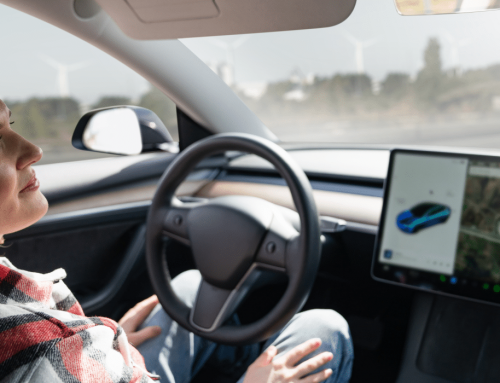The new era of traffic control: car cell phone speed cameras rely on artificial intelligence

Fine notices based on new speed camera technology
Speed control was yesterday! New software now enables speed cameras to detect drivers using their cell phones behind the wheel. The local court in Trier (Rhineland-Palatinate) has already issued the first penalty notices based on this innovative technology, but this has raised concerns among traffic experts.
The use of AI speed cameras
At the moment, police and regulatory laws still lack a clear legal basis for the use and sanctioning of affected drivers. Nevertheless, Michael Ebling (56, SPD), Interior Minister of Rhineland-Palatinate, plans to deploy this technology throughout Germany. The new “monocam” technology has already been tested in a field trial in Mainz and Trier, with Ebling convinced of positive results.
The way the car cell phone speed cameras work is simple: a camera detects the flowing traffic and takes pictures of the passing vehicles. Artificial intelligence (AI) is then used to evaluate possible signs of prohibited cell phone use, such as the driver’s posture, arm movements and gaze behavior.
However, the recording of all vehicles, regardless of any specific suspicion, is a sticking point. The collected data is stored and only when subsequently evaluated by an officer is it checked whether a violation has occurred. In terms of data protection law, this is problematic, as recording and storing without a concrete reason could possibly be illegal and a violation of data protection regulations.
Legality of the penalty notices
Despite these concerns, the district court in Trier has ruled that penalty notices issued during test operations using the new technology are lawful. The district judge argued that the public interest in traffic safety was an obstacle to using the evidence. In Rhineland-Palatinate, there were 1,041 accidents in 2022 alone that were due to distraction caused by cell phone use.
However, it remains to be seen what the verdicts of the next instances will be on the decisions of the Trier District Court. The legal questions regarding the collection and storage of data without a specific cause must be clarified in order to avoid possible violations of data protection. Critics of monocam use argue that the current regulations are too vague and that collecting data without suspicion is illegal.
The car cell phone speed cameras undoubtedly represent a new era of traffic control. Whether they will be used across the board in the future and what impact this will have on data protection and traffic monitoring remains to be seen.





